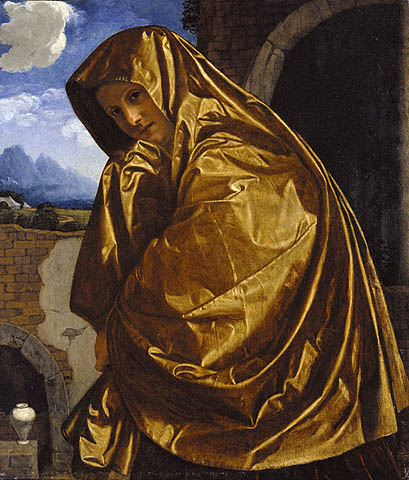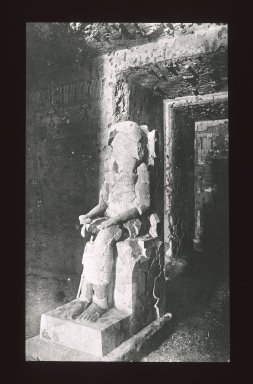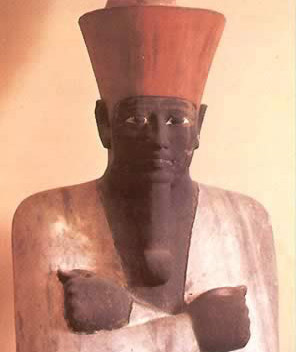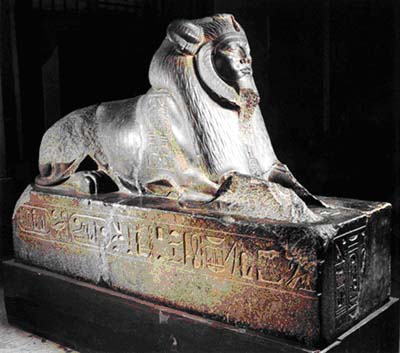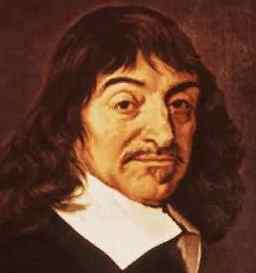April 7, 2011 New A Venetian Woman (St Mary Magdalen)
I love this painting…look at the secret in her eyes…and yet also the sense of peace and she seems so content.
- Leave a comment
- Posted under Mary Magdalene
February 6, 2011 Science With Mr Q
If you are looking for an amazingly wonderful science curriculum, then look no further than Mr Q!!!
We have been using Mr Q for around a year now, and are soon to finish the first curriculum on Classic Science.
Mr M simply LOVES this curriculum, and I’m all for making things as easy as possible for home schooling parents, and it has everything you need for parents and students.
Mr Q has a very funny writing style, but doesn’t ‘dumb down’ the curriculum. Children learn proper words, and he also includes a pronunciation guide to make it easier (on us both!)
The curriculum comes with two books – one for the student, and one for the parent.
There are nine units in total, covering everything from cells, body organs, biomes, life cycles and classification.
The student book includes the readings for the unit, and then activities for each unit.
The teacher book includes instructions for each chapter (36 in all) which includes vocabulary used, and three days of teaching instructions per chapter. It is enough for three science lessons per week during the school year, with four weeks left over for any breaks or further investigations that you and/or your child are inclined to do.
Also included are science investigations, so that by the end of the school year, your child has been exposed to scientific explorations – setting hypothesis, variables, experiments and conclusions.
I highly, highly recommend this curriculum, and will DEFINITELY be purchasing his other three curriculum’s which are available from his website via download.
I also recommended him to our homeschool group teacher, and she has purchased the Chemistry and Physics curriculum’s so our homeschool group is working our way through these as well.
- Leave a comment
- Posted under Homeschooling, Reviews, Science
February 6, 2011 Homeschool Weekly Planning
I still use the same planning techniques as I did when I was classroom teaching. And paid. Imagine that!
Once I have my yearly plan and term plan, I move onto my weekly plans.
I still use the same teacher planning books that I did when I was teaching…though it’s a little more colourful now! I know that it would be easier to use a computer for my planning, particularly for the repetitive tasks, but I like to write and I like to see it in hard copy.
Initially my planning will be a little more structured as we start the school year…I usually loosen up a bit. But I’m going to really try to have superb records this year, the same as I would do as a classroom teacher.
There is an option for seven periods per day, but I use them differently, with one square for after school, and one for evenings.
To the side, I include my weekly priorities, resources needed, Evaluation (completed Friday afternoons) and Weekend.
It works for moi 🙂
- Leave a comment
- Posted under Homeschooling, Planning
February 6, 2011 Homeschool Planning – Term Overview
I am a very visual person, and as much as I’d love one of the fancy planners, most don’t suit because they are for America, they are Christian based (I’m spiritual but don’t like a lot of what is written) and of course, there’s always the cost.
So…I have my pens and I’ve created my term overview – just a one page snapshot of the next ten weeks.
It includes:
Age, Height & Weight. (height and weight are important to me, because he was ill last year, and lost weight. He is also very thin and has eating issues!)
Strengths: Science, Math, Thinking
Challenges: Handwriting, spelling
Goals:
- To form letters and numbers in correct manner.
- To know up to 10×10 instantly.
- To finish reading Sophie’s World (with me)
- Take responsibility for learning by maintaining student notebook and completing work – including daily piano.
Curriculum Overview:
Math – Excel Basic Skills, Year 7, Timestables
Science – Mr Q, Classic Science
Phonics – Spectrum
Grammar – Spectrum Language Arts
History – Story of the World, Ancient History
Art – coming
Music – Piano
Literature – Weekly library, recording reading list, one report weekly.
Additional Activities:
- Karate x2 a week.
- Trip to Rotorua in Week Three
- Homeschool Group, Wednesday mornings.
- Year 10 Gifted program.
- Read Sophie’s World Together
- Mentor work – Sudoku and Chess
- Leave a comment
- Posted under Homeschooling, Planning
February 6, 2011 Homeschool Planning – The Yearly Overview 2011
It’s been a riduculously long time since I’ve updated my blog, but am inspired by my friend and fellow homeschooler Sarah, who has started a blog over at Blogspot.
Anyway…this year is going to be full on for me with all four children being educated in different places – one at high school, one at intermediate, one homeschooled and one in primary school.
This week I’ve been getting my planning for the year organized. I have seen some lovely planners around the internet, but many are based on the American school terms and so aren’t very useful to me here in New Zealand.
Last year, due to a long viral illness (five months) we didn’t get nearly as much done as I had planned.
When I look at the year, I look at each subject area and create goals, and list which curriculum I am going to use, and approximately how much time we will spend on each subject per week.
This Year:
Music: Continue learning the piano, with 20 minute practice daily.
English: Spelling (Spectrum), Grammar & Writing (Spectrum) and integrated into other subject areas.
Math: We will spend the first term reviewing intermediate school math, and then decide where to from there.
Science: Continue with Mr Q Classic Science. He has spent a LOT of time on science over the last few months with his mentor, so we will finish up the Classic Science book, look after his axylotl, grow his own vege garden, study body systems & DNA. 1 1/2 hours a week.
History: Complete The Story of the World Ancient History – 1 1/2 hours x2 a week.
Art: Still deciding on which art curriculum to use.
Latin: We will start Latin in term three.
Thinking Skills: Mr M will be taking part in a Year 10 Gifted Program at a high school.
Physical Education: Continue with swimming, and Karate x2 a week.
- Leave a comment
- Posted under Homeschooling, Planning
December 5, 2010 Middle Kingdom of Ancient Egypt
The Middle Kingdom of Ancient Egypt:
This week in our Story of the World studies we are going to the Middle Kingdom of Ancient Egypt.
So excited to be heading back to Egypt – both Mr. M and I are very passionate about the subject!
The Middle Kingdom:
The Middle Kingdom of Egypt is known Egypt’s ‘Golden Age’. It’s a time period where trade, the arts and literature flourished. It includes the 11th & 12th dynasties of Ancient Egypt.
Amenemhet became the pharaoh and conquered Nubia – and how did this benefit the Egyptians? Because it had GOLD!
The pharoah’s regained their importance during this time period, but this time instead of the massive pyramids of the Old Kingdom, they were buried in hidden tombs…so chances are we will still find some!
Mentuhotep was the first Pharoah of the Middle Kingdom of Ancient Egypt.
Find out more about Mentuhotep
And even more about Mentuhotep!
Note: there wasn’t just one Mentuhotep, it is a family name that ruled the 11th Dynasty of Ancient Egypt.
The 12th Dynasty was ruled by Amenemhet
Read more info about Amenemhet
I’ve only done a little bit of research on this topic, and no doubt will come across more throughout the week.
What I have found and loved, is Ancient Egyptian Maths…as Mr M loves maths, we’ll be exploring this a lot this week.
Extra Literature:
Here is the story of The Shipwrecked Sailor, dated at 2,200BC
Tags: ancient history, egypt, SOTW
- Leave a comment
- Posted under History, Homeschooling
December 4, 2010 Educating With The Great Books
“The reading of all good books is indeed like a conversation with the noblest men of past centuries who were the authors of them, nay a carefully studied conversation, in which they reveal to us none but the best of their thoughts.” – René Descartes, Discourse on Method
One method, or type of homeschooling that I am particularly committed to is called a Liberal Arts education. As part of a liberal arts education, children are often exposed to the Great Books movement, that began in the 1920’s in order to improve the standard of education, which many educational theorists believed was ‘dumbing’ down our children.
The Great Books is not only a list of books, but also a full curriculum, relying on the Socratic method of discussions to open the mind.
From wiki:
“The essential component of such programs is a high degree of engagement with whole primary texts, called the Great Books. The curricula of Great Books programs often follow a canon of texts considered more or less essential to a student’s education, such as Plato’s Republic, or Dante’s Divine Comedy. Such programs often focus exclusively on Western culture. Their employment of primary texts dictates an interdisciplinary approach, as most of the Great Books do not fall neatly under the prerogative of a single contemporary academic discipline. Great Books programs often include designated discussion groups as well as lectures, and have small class sizes. In general students in such programs receive an abnormally high degree of attention from their professors, as part of the overall aim of fostering a community of learning.”
Mortimer Adler, was one of the modern proponents of The Great Books, and took the course himself in 1921. Adler continued his support and study of the Great Books for 79 years, saying: “Our minds, unlike our bodies, are able to grow until death overtakes us. The only condition of its continual growth is that it be continually nourished and exercised. How nourished? By reading the great books year after year. How exercised? By discussing them.”
The selection of a Great Book, has to meet the following criteria:
1.) Contemporary significance – not confined exclusively to one historical era, a timeless and universal appeal;
2.) Rereadability – books intended for rereading, many times and worth the effort due to their insights, beauty, and wisdom;
3.) Extensive relevance to the great ideas – each author selected has something significant to say about a large number of the great ideas; their contirbution to the great on-going conversation in Western civilization. Scott Buchanan had also introduced the criterion of
4.) indispensibility to anyone’s education, which was accepted.
Obviously this results in cultural bias, and a reflection of the people who select the books.
For me, it provides an outline, but not a strict list that I must adhere to. I am loving reading classics that I have never read before, and yet read various modern versions of, or have seen the movie. Alice in Wonderland, springs to mind.
I also have my own list of books that I think are important for my kids to read – we are working our way through Sophie’s World at the moment, as an example.
If you are interested in investigating the list further, Old Fashioned Education, offers a full Year 1-12 Book list.
1-12 book list(2).pdf
The Great Books Academy also offers a comprehensive reading list for a variety of ages.
Here is Adler’s Great Books List:
“Great Books of the Western World” by Mortimer Adler
The Syntopicon: An Index to the Great Ideas
Angel to Love
Man to World
Homer. Iliad; Odyssey
Aeschylus. Plays
Sophocles. Plays
Euripides. Plays
Aristophanes. Plays
Herodotus. History
Thucydides. The History of the Peloponnesian War
Plato: Dialogues; Seventh Letter
Aristotle: Works
Hippocrates. Hippocratic Writings
Galen. On the Natural Faculties
Euclid. Elements
Archimedes. Works (including The Method)
Nicomachus. Introduction to Arithmetic
Lucretius. The Way Things Are
Epictetus. Discourses
Marcus Aurelius. The Meditations
Plotinus. The Six Enneads
Virgil: Eclogues. Georgics; Aeneid
Plutarch. Lives of the Noble Grecians and Romans
Tacitus. Annals; Histories
Ptolemy. Almagest
Copernicus. On the Revolutions of the Heavenly Spheres
Kepler. Epitome of Copernican Astronomy; The Harmonies of the World
Augustine. The Confessions; The City of God; On Christian Doctrine
Thomas Aquinas. Summa Theologica
Dante. Divine Comedy
Chaucer. Troilus and Criseyde; Canterbury Tales
Calvin. Institutes of the Christian Religion
Machiavelli. The Prince
Hobbes. Leviathan
Rabelais. Gargantua and Pantagruel
Erasmus. Praise of Folly
Montaigne. Essays
Shakespeare. The Plays and Sonnets
Gilbert. On the Loadstone and Magnetic Bodies
Galileo. Concerning the Two New Sciences
Harvey. On the Motion of the Heart and Blood in Animals; On the Circulation of the Blood; On the Generation of Animals
Cervantes: The History of Don Quixote de la Mancha
Bacon. Advancement of Learning; Novum Organum; New Atlantis
Descartes. Rules for the Direction of the Mind; Discourse on the Method; Meditations on First Philosophy; Objections Against the Meditations and Replies; The Geometry
Spinoza. Ethics
Milton. English minor poems; Paradise Lost; Samson Agonistes; Areopagitica
Pascal. The Provincial Letters; Pensees; Scientific Treatises
Moliere. The School for Wives; The Critique of the School for Wives; Tartuffe; Don Juan; The Miser; The Would-Be Gentleman; The Would-Be Invalid
Racine. Berenice
Newton. Mathematical Principles of Natural Philosophy; Optics
Huygens. Treatise on Light
Locke. A Letter Concerning Toleration; Concerning Civil Government, Second Essay; An Essay Concerning Human Understanding
Berkeley. The Principles of Human Knowledge
Hume. An Enquiry Concerning Human Understanding
Swift. Gulliver’s Travels
Voltaire. Candide
Diderot. Rameau’s Nephew
Montesquieu. The Spirit of Laws
Rousseau. On the Origin of Inequality; On Political Economy; The Social Contract
Smith. An Inquiry into the Nature and Causes of the Wealth of Nations
Gibbon. History of the Decline and Fall of the Roman Empire
Kant. The Critique of Pure Reason; The Critique of Practical Reason, and Other Ethical Treatises; The Critique of Judgment
American State Papers. Declaration of Independence; Articles of Confederation; The Constitution
Hamilton, Madison, Jay. The Federalist
Mill. On Liberty; Representative Government; Utilitarianism
Boswell. Life of Samuel Johnson
Lavoisier. Elements of Chemistry
Faraday. Experimental Researches in Electricity
Hegel. The Philosophy of Right;The Philosophy of History
Kierkegaard. Fear and Trembling
Nietzsche. Beyond Good and Evil
Tocqueville. Democracy in America
Goethe. Faust: Parts One and Two
Balzac. Cousin Bette
Austen. Emma
Eliot. Middlemarch
Dickens. Little Dorrit
Melville. Moby Dick
Twain. Adventures of Huckleberry Finn
Darwin. The Origin of Species; The Descent of Man and
Marx and Engels. Manifesto of the Communist Party; Capital
Tolstoy. War and Peace
Dostoyevsky. The Brothers Karamazov
Ibsen. A Doll’s House; The Wild Duck; Hedda Gabler; The Master Builder
James. The Principles of Psychology
Freud. The Major Works of Sigmund Freud
20th Century Philosophy and Religion
James. Pragmatism
Bergson. An Introduction to Metaphysics
Dewey. Experience and Education
Whitehead. Science and the Modern World
Russell. The Problems of Philosophy
Heidegger. What is Metaphysics?
Wittgenstein. Philosophical Investigations
Barth. The Word of God and the Word of Man
20th Century Natural Science
Poincare. Science and Hypothesis
Planck. Scientific Autobiography and Other Papers
Whitehead. An Introduction to Mathematics
Einstein. Relativity: The Special and the General Theory
Eddington. The Expanding Universe
Bohr. Atomic Theory and the Description of Nature; Discussion with Einstein on Epistemological Problems in Atomic Physics
Hardy. A Mathematician’s Apology
Heisenberg. Physics and Philosophy
Schrodinger. What is Life?
Dobzhansky. Genetics and the Origin of Species
Waddington. The Nature of Life
20th Century Social Science
Veblen. The Theory of the Leisure Class
Tawney. The Acquisitive Society
Keynes. The General Theory of Employment, Interest and Money
Frazer. The Golden Bough (selections)
Weber. Essays in Sociology (selections)
Huizinga. The Waning of the Middle Ages
Levi-Strauss. Structural Anthropology (selections)
20th Century Imaginative Literature
James. The Beast in the Jungle
Shaw. Saint Joan
Conrad. Heart of Darkness
Chekhov. Uncle Vanya
Pirandello. Six Characters in Search of an Author
Proust. Remembrance of Things Past. “Swann in Love”
Cather. A Lost Lady
Mann. Death in Venice
Joyce. A Portrait of the Artist as a Young Man
Woolf. To the Lighthouse
Kafka. Metamorphosis
Lawrence. The Prussian Officer
Eliot. The Waste Land
O’Neill. Mourning Becomes Electra
Fitzgerald. The Great Gatsby
Faulkner. A Rose for Emily
Brecht. Mother Courage and Her Children
Hemingway. The Short Happy Life of Macomber
Orwell. Animal Farm
Beckett. Waiting for Godot
List is Copyright.
Source: Great Books of the Western World. Ed. by Mortimer J. Adler, Clifton Fadiman, Philip W. Goetz. 2nd ed. Chicago: Encyclopaedia Britannica, 1990. © 1990
Tags: great books, homeschooling, reading
- Leave a comment
- Posted under Homeschooling
December 4, 2010 Free Stocking Stuffer Template
Lauren from Paper Trey Ink is offering a variation on the traditional stocking with this standable boxy bag that can be filled to the brim with all your stocking stuffer ideas.
She has heaps of ideas about how to use them (even as a baby bootee for a baby gift).
- Leave a comment
- Posted under Christmas, Freebies
December 4, 2010 Christmas Decoration Ideas
The internet is filled with amazingly creative ideas for Christmas Decorating!
Above: All You
A Little Lovely has loads of lovely Christmas Decorating
- Leave a comment
- Posted under Christmas, House Keeping
December 3, 2010 Visit to Waikumete Cemetery
We visited Waikumete Cemetery today…it was powerful and filled with beauty and tragedy.
Tags: cemetery
- Leave a comment
- Posted under Beauty, Creative, Spirituality, Thoughts
